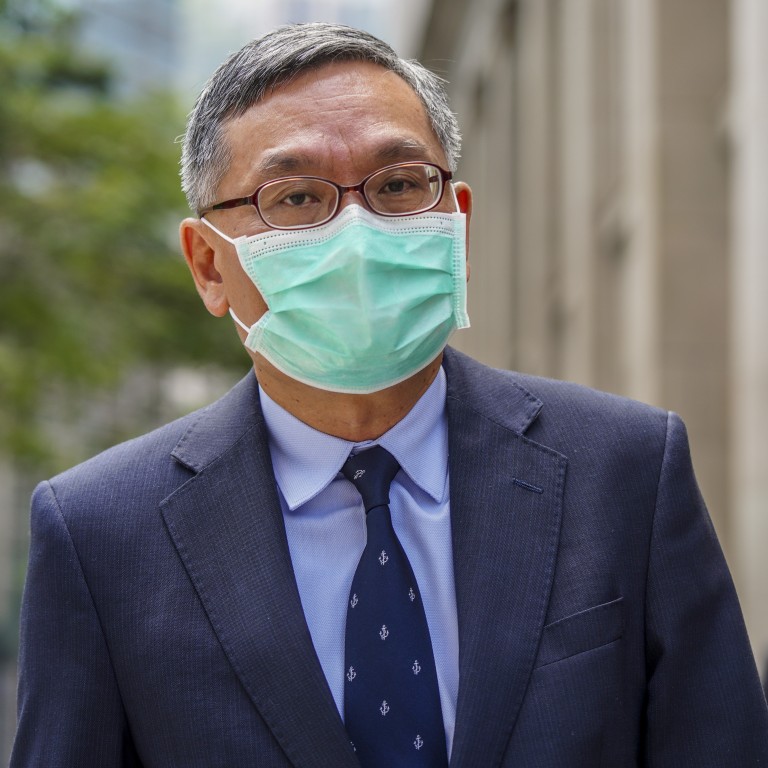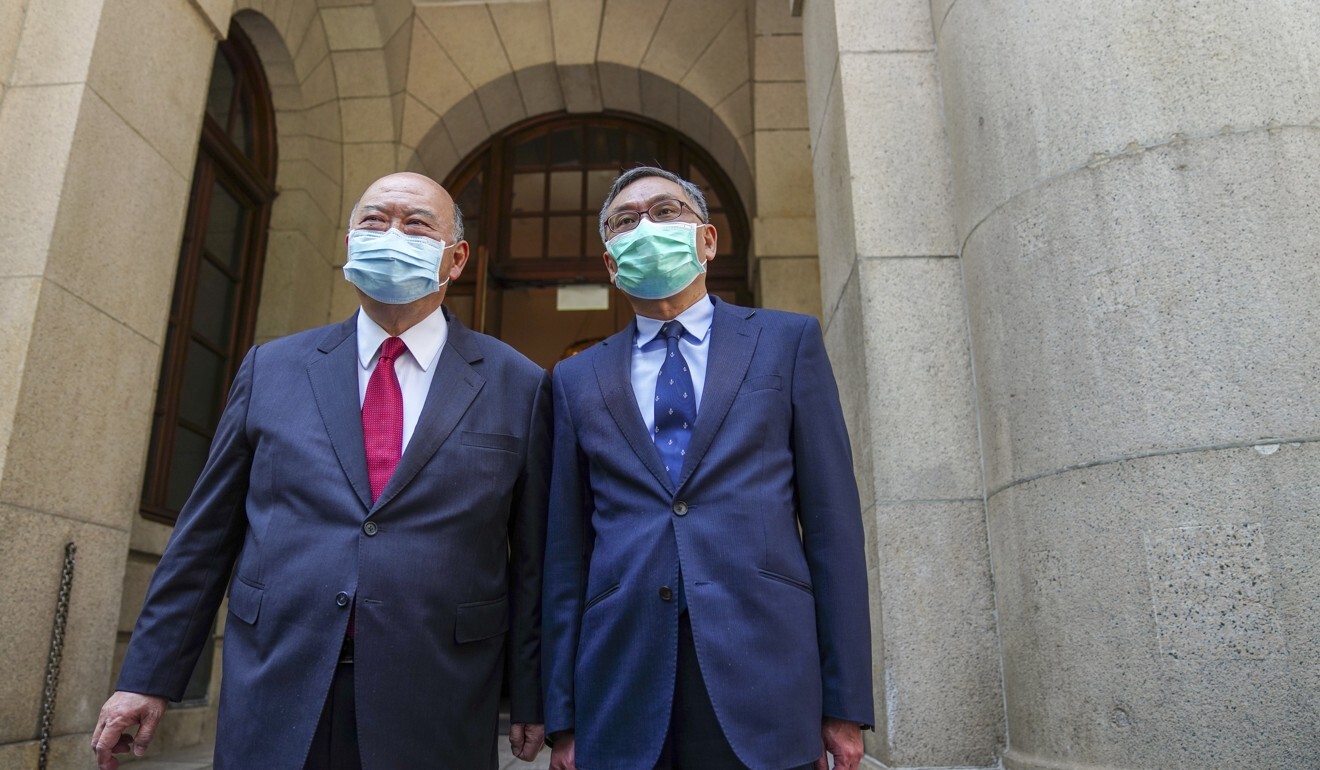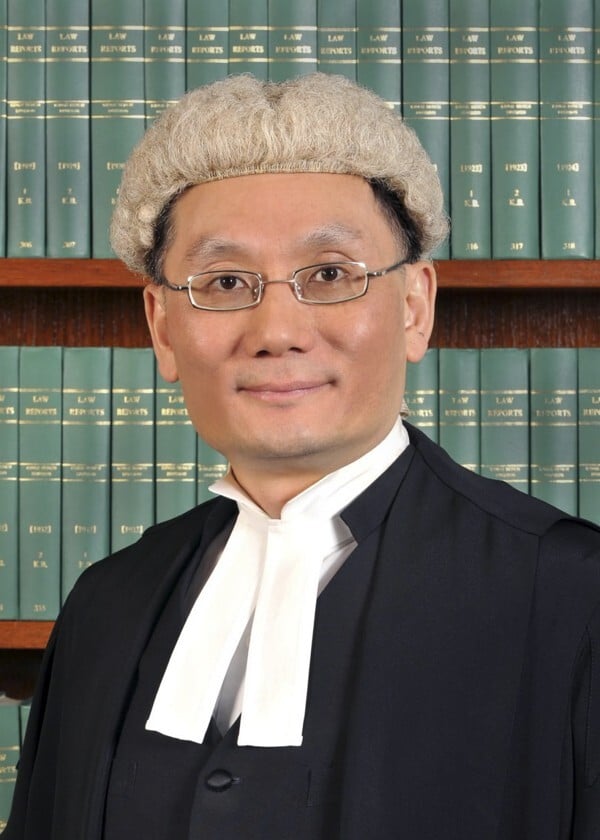
Seasoned jurist Andrew Cheung steps up as Hong Kong’s new chief justice amid political turmoil and pressure from Beijing
- First Hong Kong graduate to head judiciary is said to be low profile, known for conservative decisions
- Legal scholar says new chief justice is a ‘highly intelligent, patient judge’ who keeps an open mind
Andrew Cheung Kui-nung takes over as Hong Kong’s chief justice on Monday, and few have lavished more praise on him than his predecessor, Geoffrey Ma Tao-li.
“I would not have left this office at all if I thought that nobody was suitable to take over from me. Somebody suitable and good will be taking over, probably better than I, and I am confident of the future,” Ma said at a farewell event last week.
The first Hong Kong law graduate to rise to become chief justice, Cheung will have to prove he can continue to uphold the rule of law in Hong Kong and maintain the independence of the courts, even as Beijing has proved increasingly willing to weigh in on the city’s judicial affairs.

Cheung, 59, is expected to be in charge for the next decade, as the retirement age for judges has been raised from 65 to 70.
A graduate of the University of Hong Kong, he began in private practice in 1986, specialising mainly in civil and commercial cases. He has a master’s degree from Harvard University in the United States.
In 2001, he was appointed a judge in the District Court. Two years later, he was made a justice at the Court of First Instance. He became chief judge of the High Court in 2011, and was elevated to the apex court in 2018.
People who have met Cheung describe his reserved style and knack for keeping a low profile. Others say he is a devout Christian, married with three children.

As a former appeal court judge, he is known for some conservative decisions.
Human rights lawyer Mark Daly said: “While we will continue to advocate for fundamental human rights, recognisable internationally, I have concerns, given some of his early judgments with respect to refugee and migrant rights and LGBT+ rights, which were thankfully put right at the Court of Final Appeal.”
He added that the judiciary was at a juncture where it was facing unprecedented pressure, and needed, more than ever, “to be balanced and just towards the vulnerable in society and … a check on the excesses of an unrepresentative government”.
As chief justice, Cheung can expect to preside over cases pertaining to some of the city’s most politically charged issues.
Opposition activists, meanwhile, will be scrutinising his every ruling as well, eager to note whether Hong Kong’s courts start bowing to Beijing.
Veteran lawyers who spoke to the Post said they hoped Cheung would stand firm and defend the judiciary’s independence against attacks and insinuations, “especially from the side with power”.
One senior counsel said they hoped Cheung “would continue the good tradition of attracting overseas top legal minds” to sit on the Court of Final Appeal as a sign of support.

HKU legal scholar Simon Young Ngai-man, who researches the Court of Final Appeal, said he had appeared before Cheung before and described him as a “highly intelligent judge who approaches the case conscientiously, patiently and with an open mind”.
To those who worry that Cheung may prove more conservative than his predecessor, Young recalled similar talk when Ma became chief justice a decade ago.
“People also said Ma … would be a conservative judge on the Court of Final Appeal but this did not prove to be the case entirely,” he said.
“There is a special dynamic in the [apex court] where judges have more time to think about the legal issues with the benefit of the wisdom of the other four judges, including the foreign judge and the assistance from the best advocates in Hong Kong and sometimes the United Kingdom.”
Those with questions about Cheung in the top job will find their answers over the coming years in the judgments he will write.
Ma had this to share with his successor, in his farewell speech last week: “My only advice to him is, always to be guided by your principles, for it is these principles that will see you and the community through all seasons.”

